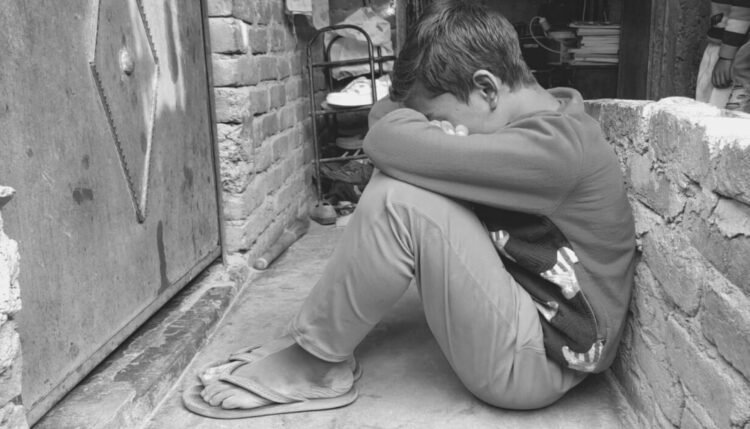Children felt confused and at loss with the current situation, leading to frustration and anxiety, which will only increase with the overexposure to mass and social media.
In early March, as India began reporting its initial coronavirus cases, most states ordered schools to close to stop the spread of the infection. While the disease had severe physical results, the impact of non-pharmaceutical interventions (NPIs) – such as social distancing, travel restrictions and regional or national lockdowns – have had behavioral, psychological and health-related impacts on us all. One such group that has been most adversely affected is children. According to a UNESCO estimate, nearly 321 million Indian children were asked to stay home.
The current outbreak will have profound impact not only in the health and economic situation, but also on the psychosocial well-being of children. They will face additional challenges to understand, absorb, and deal with the changes that COVID-19 is bringing. Due to restriction of movements, children have constrained access to socialization, play, and even physical contact, critical for their psychosocial wellbeing and development. Additionally school closures prevented children from access to learning and limiting their interactions with peers.
Children felt confused and at loss with the current situation, leading to frustration and anxiety, which will only increase with the overexposure to mass and social media. In the absence of regular classroom education, screen times for children have certainly increased. It also puts them at the risk of unsupervised access to websites not suitable for them or even fall prey to cyberbullying.
Not just children, COVID-19 has also been bringing new stressors on parent and caregivers like AROH Foundation.
AROH is a national level NGO working for welfare of children through interventions of Education, Health & Sanitation, Nutrition, Psychological support for past 2 decades now and has been able to positively impact more than 50,000 children by far. AROH was actively involved in remedial education and holistic development of over 1000 living in slums of Sangam Vihar & Mundka of Delhi children through project RISE, during the coronavirus outbreak.
With the sudden lockdown and subsequent impact as stress, anxiety and depression, it was anticipated only as the beginning as the levels of stress were exponentially higher among these vulnerable families.
11 year old Usman was one of those silent sufferers of the lockdown who were themselves unknown to the Covid endangerment.
Usman’s large family of 8 including parents and 5 siblings were forced to coop inside their 1 room home during the lockdown for months. It bounded to spell deep trouble for him, who was already suffering from mental stress conditions. The irritability and anxiousness bounded to rub off on each other leading to tension and stress in the household.
It also lead to frequent domestic violence and abuses from his alcoholic father during lockdown. During COVID pandemic and lockdown, RISE centres have been doubling up as community service centres to reach out help to needy communities to help them cope up with demands of changing situation. Not just for Usman, but for hundreds of other families , AROH’s corona warriors, while sensing the crisis, immediately addressed the issue with regular home visits, online and offline counseling sessions. AROH also facilitated ration and safety kit distribution to hundreds of families, to lower down the stress.
These spontaneous supports by team AROH acted as stopgap between crisis and its solution.
Just after the Unlocking process, Usman could narrate how AROH helped his whole family to sail through the emergency. He says, “With each passing day, the situation was getting worse. Violent father, food & space crisis and psychological stress was taking a toll on each one of us. AROH came in quick contact and maintained the same throughout the lockdown. They took care of each of our issues from food, safety kit, and counseling and even provided me with pre-used mobile to continue my digital education. Not just me many other families were supported in the same way. We felt safe and sane.”
Speaking more on how AROH has focused on psychological well-being of children elucidated, “While children are resilient, we cannot underestimate the impact of the pandemic on their mental wellbeing and overall health. Children in a stable environment are likely to fare better, but many children are not so fortunate. Those who are living in poverty, who are experiencing violence at home, or are otherwise vulnerable can really be pushed over the edge by long lasting lockdowns—in the worst cases if left unaddressed this could escalate to depression and other mental health concerns. The mental health impacts of COVID-19 could be seen far beyond the life of the pandemic. AROH also is calling on government to prioritize and invest in children’s mental health, wellbeing and learning as part of their response to the outbreak. This includes support for children living in the poorest and most fragile regions like urban slums or conflict affected communities that may be less equipped to respond to the needs of children who could be separated from parents due to illness, isolation measures or bereavement.”






